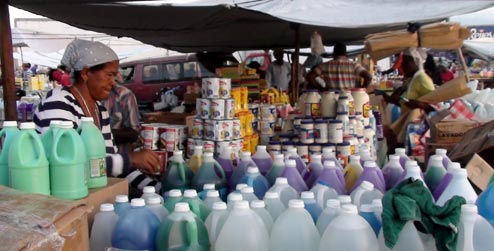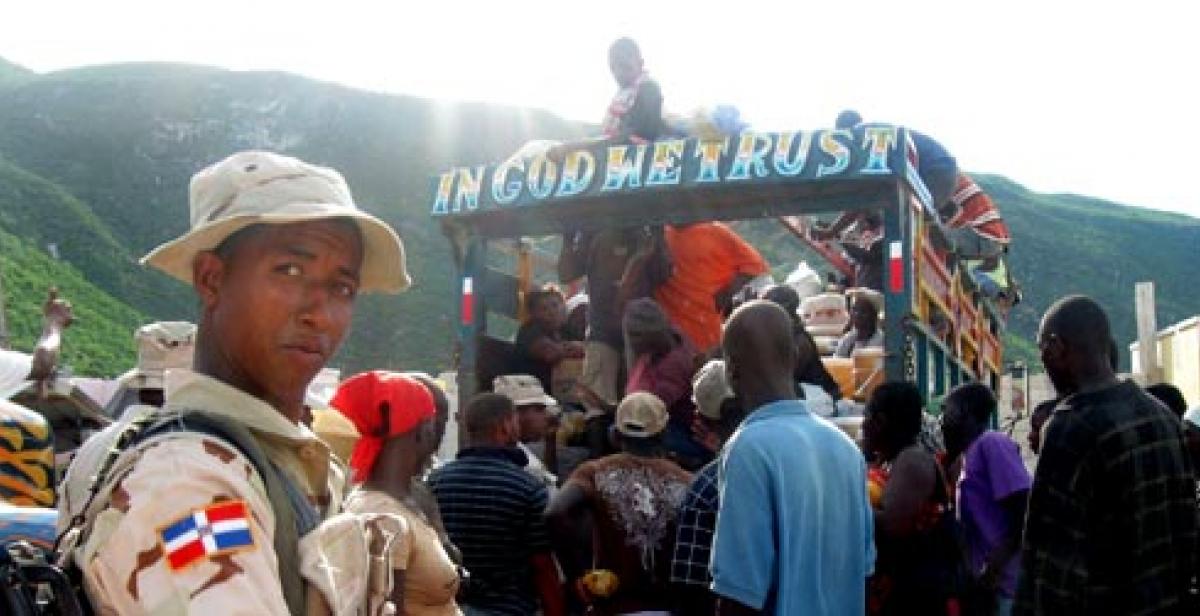Vita Randazzo writes about market day in the border town of Jimani
The recent solidarity of the Dominican people with Haiti – shown by their spontaneous and immediate response to the 2010 earthquake – is being tested on a daily basis by the increasing presence of Haitians in the Dominican Republic (DR), especially in the border areas.
In the border town of Jimani, the DR-based Jesuit Service for Refugees and Migrants (JSRM) estimates that at least three of every 10 residents are immigrant persons of Haitian descent. And, for the majority of the Dominican people living in this city, this is probably a conservative estimate: most of them would say that now, after the earthquake, at least 50% of the population of Jimani and the surrounding areas are from across the border.
Added to this pressure is the fact that the main source of income for the majority of the population is from the informal economy, with the most important local commercial activity being the bi-national market of ‘Malpaso’ – a market held in Jimani every Monday and Thursday which attracts a multitude of buyers and sellers from over the border in Haiti, particularly from Ganthier.
Unfortunately, the market suffers from a lack of minimum health standards and inadequate organisation and control, affecting both sellers and buyers and meaning that the commercial movement it produces has a limited impact on the formal economy of the region.

In addition, there are countless reports of malpractices and abuses by the military authorities in the face of the mass movement of people across the borders.
Yet the market has the potential to be a great force for good. Lizan Antoine, who works for the Haiti-based Jesuit Service for Refugees (JSR) in Fond Parisien and Belladere in the Haitian border zone, told me: “The bi-national markets in Dominican territory represent an opportunity because they originally started as fairs that brought together the two peoples sharing the same island. Recovering that spirit is key to their future.”
And Pedro Santana, a community leader, said at a meeting for Dominican civil society organised by the JSRM in Jimani: “We want the Malpaso to become a better market for everyone, even those who currently live in lawlessness and disorder or suffer abuse.”
For now, the government authorities responsible for regulating the trade in this border area have delegated management of the activities of the market to the Association of Merchants of Jimaní. It looks like it will be up to the JSRM to lead the fight against the abuses and violations of human rights that currently prevent the market from truly benefiting the people from both sides of the border who rely on the market for their livelihoods.
Vita Randazzo is a Progressio development worker in the Dominican Republic, working with the JSRM in Jimani.
Photos: a “Machin Mon” – Mountain Car – transporting people to the Malpaso market; a Dominican seller at her market stall in the bi-national market of Malpaso, Jimaní, Dominican Republic. (Photos © Vita Randazzo/Progressio)



